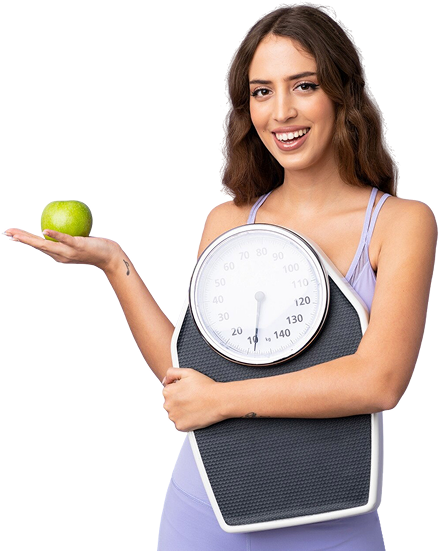Support For Every Stage of Your Cycle
Whether you’re dealing with occasional cramps or recurring pain, our expert-backed resources offer practical, personalised ways to find relief. Explore effective treatments and wellness routines that help you feel like yourself again. Our guidance is tailored to help you feel better, faster.

Period pain relief is essential for anyone who experiences monthly discomfort and wants to regain control over their day. Whether you’re looking for fast-acting painkillers or natural period pain relief strategies, understanding your options can help you stop cramps before they start.
Explore everything from over‑the‑counter period relief to home remedies in the UK, so you can find the best approach for your body and lifestyle.
Menstrual cramps, also known as dysmenorrhea, are typically caused by the uterus contracting to shed its lining. These contractions are triggered by prostaglandins which are hormone-like substances involved in pain and inflammation.
Risk factors for intense cramps include a heavy menstrual flow, being under 25, or having underlying medical conditions such as endometriosis or fibroids.
While mild cramps are normal, it is important to recognise when pain signals something more serious. Persistent or worsening cramps, pain during sex, or very heavy bleeding could indicate conditions like endometriosis, fibroids, or pelvic inflammatory disease. Schedule your private assessment today.
Painkillers like ibuprofen, nuramol, and paracetamol are widely used in the UK for menstrual cramps. These anti-inflammatory medications (NSAIDs), such as ibuprofen and naproxen reduce prostaglandin levels and relieve inflammation more effectively. It is recommended to always follow dosage guidelines and speak to a pharmacist if you’re unsure.
Many people find relief through natural methods. Herbal teas like chamomile or ginger can soothe cramps, while magnesium supplements may help reduce the intensity and frequency of pain. These options can be ideal for those looking to avoid medications.
Applying heat relaxes uterine muscles and improves blood flow. Use a hot water bottle, heat patch, or take a warm bath for around 15–20 minutes. Don’t apply excessive heat directly to skin.
Low-impact activity like walking, stretching, or gentle yoga can boost circulation and release endorphins which help relieve pain.
Eating anti-inflammatory foods such as leafy green vegetables, berries, turmeric, and omega‑3 rich fish can lower prostaglandin production. Try to avoid excess caffeine and sugar, which may worsen cramps. Staying hydrated helps reduce bloating and muscle tension.
Chronic stress and poor sleep can throw off hormone balance, worsening menstrual symptoms. Practice mindfulness, deep breathing, or guided meditation. Prioritise 7–9 hours of quality sleep each night.
Book your women’s health consultation with us. It gives you access to tailored advice, symptom screening, and treatment recommendations. You can discuss options, including pain management, diagnostics, and hormonal therapies.
For those with intense or persistent cramps, we have solutions available. This may include hormonal birth control, prescription NSAIDs, or referrals to gynaecologists for conditions like endometriosis.
Book a consultation with our health specialists or Shop Relief Products from our range of period pain relief products tailored to your needs.
What causes period pain and why do cramps occur?
Menstrual cramps are caused by uterine contractions triggered by prostaglandins. Higher levels of these in the body result in stronger, more painful cramps.
How can I stop period cramps quickly at home?
Apply heat to your abdomen, take an over-the-counter painkiller, or do gentle exercise like stretching or walking.
Which over‑the‑counter painkillers are most effective for period pain?
Ibuprofen and naproxen (NSAIDs) are often the most effective as they reduce inflammation. Paracetamol can also help relieve mild pain.
Are natural remedies like herbal teas and supplements effective for menstrual cramps?
Yes, many find relief using teas like chamomile or supplements like magnesium, though results can vary.
How do heat therapy methods (heat packs, warm baths) help relieve period pain?
Heat relaxes uterine muscles and improves blood flow, which can ease cramping and helps in relieving period pain.
Can specific exercises or yoga poses reduce menstrual cramp discomfort?
Yes, gentle movement releases endorphins and enhances circulation, both of which help reduce pain.
When should I consider seeing a doctor about my period pain?
If your cramps are severe, disrupt your daily activities, or are accompanied by other symptoms like heavy bleeding or pain during sex, it is advised to see a doctor.
What dietary changes can help minimise menstrual cramping?
Eating more anti-inflammatory foods and reducing caffeine, processed foods, and sugar can help reduce pain.
Are there any lifestyle habits that can prevent or lessen period pain over time?
Yes, regular exercise, a balanced diet, stress management, and good quality sleep can all reduce symptom severity.
What treatment options are available for severe period cramps in the UK?
Hormonal treatments, prescription painkillers, and specialist referrals for underlying conditions like endometriosis or fibroids.